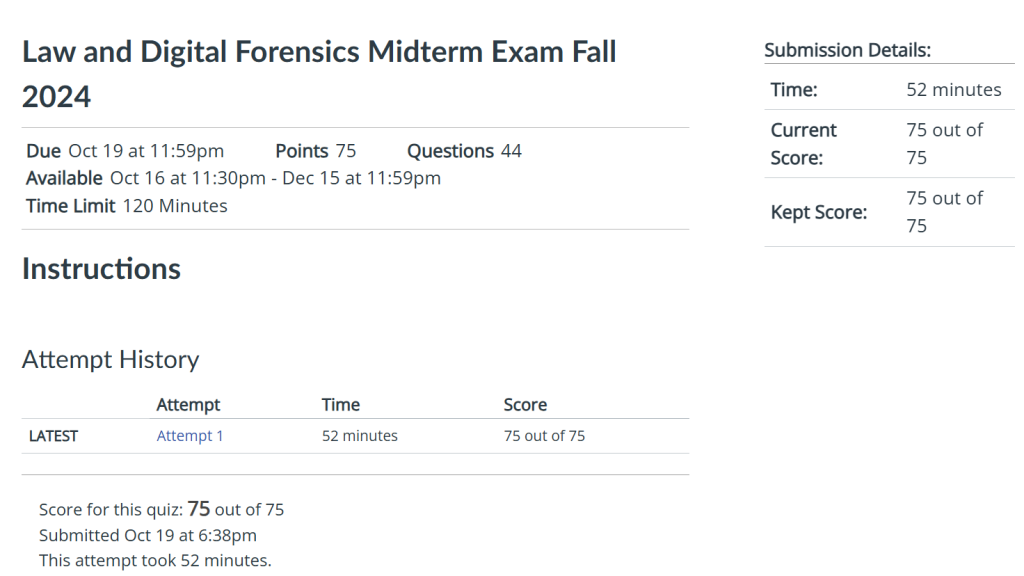Law and Digital Forensics
Students will learn about, evaluate, and apply material relating the following topics and relevant laws and principles:
- Cybercrime and how it differs from crime before there was an Internet and everything we do is based on computer technologies;
- Basics of computer forensic investigations;
- Laws regulating access to electronic evidence;
- Searches and seizures of computers and electronic evidence;
- Relevant laws relating to specific crimes involving the digital world;
- Activities of scam artists and others who lurk in the computer-networking environment;
- Cyberterrorism: what it is and isn’t;
- Using tools to find electronic evidence;
- Basics of what investigators should do at an incident scene;
- Conducting corporate investigations;
- Basics of email, network and mobile device forensics;
- Pretrial and courtroom experiences of a computer forensics investigator.
Course Material
In this discussion board artifact below, I was tasked with describing a cybercrime that occurred somewhere in the United States. For my crime, I described a case of cyberstalking that occurred in Maryland, detailing what the criminal did and how it was punished by the law.
I also included my midterm results, a perfect 75/75. I am quite proud of this accomplishment as it took a great deal of studying prior to the midterm in order to achieve this feat. I have yet to take the final as of this moment, but I can only hope to match this perfect score, and will endeavor to do so to further show my understanding of the subject of cyber law and digital forensics.
